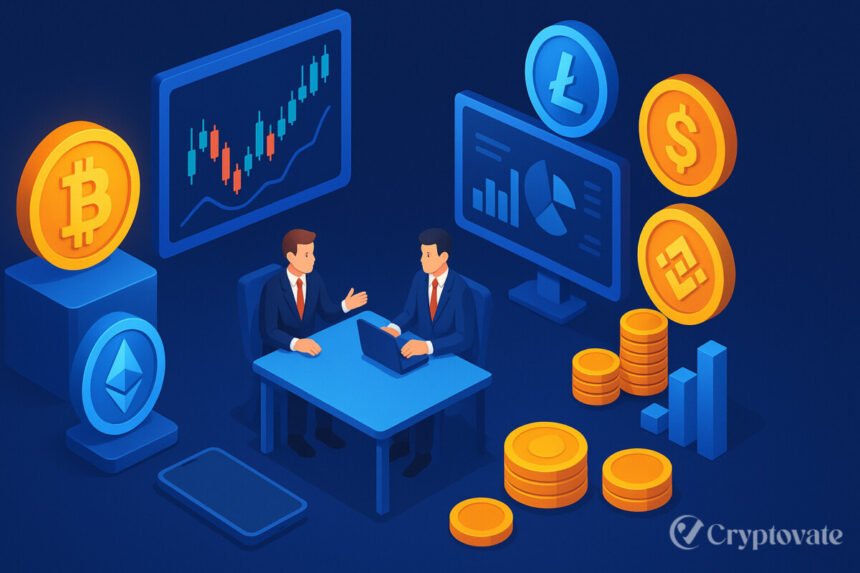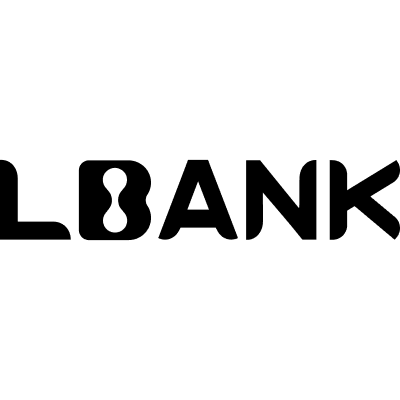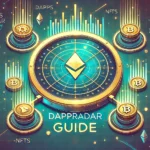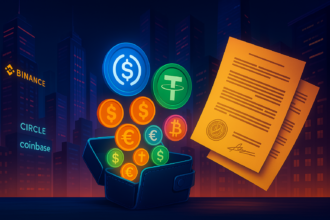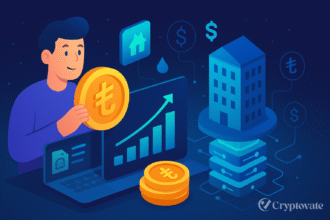– Ad –
Let’s talk about something most crypto users never think about, but whales and institutions rely on every day: OTC trading desks.
You’ve probably heard the term “OTC” tossed around in trading circles, but here’s the thing: OTC (Over-the-Counter) trading in crypto isn’t just some Wall Street leftover. It’s a whole parallel universe, quiet, powerful, and crucial for big-money moves in digital assets.
Let’s break down what crypto OTC trading is, why it matters, and how it works behind the scenes.
What is OTC Trading in Crypto?
At its core, OTC trading means buying or selling assets directly between two parties, without using a public exchange. Think of it like making a private deal at the dealership instead of bidding on a car in an auction.
But in crypto, the stakes are bigger. “Crypto OTC trading” is how institutions and high-net-worth individuals move millions (sometimes billions) of dollars in BTC, ETH, or stablecoins without moving the market.
You won’t find these trades on Binance order books or making waves on CoinMarketCap. They happen quietly, through OTC trading desks run by firms like Genesis, FalconX, Galaxy, or even some crypto-native brokerages.
Why Use an OTC Desk Instead of an Exchange?
Here’s the honest truth: if you try to buy $10 million worth of Bitcoin on a public exchange, you’re going to push the price up and lose money through slippage.
Slippage = when the price moves between placing and executing your order.
Public order books aren’t built for massive orders. Liquidity is fragmented, and market depth can get thin real fast.
That’s where OTC desks come in. They offer:
- Better pricing for large trades
- Less slippage
- Privacy (no one sees your massive buy order)
- Flexible settlement (sometimes even in fiat or cross-chain).
How Do OTC Trading Desks Work?
Let’s say you want to buy 1,000 ETH. You reach out to an OTC desk. Here’s what happens:
- RFQ (Request for Quote) – You ask for a price.
- Quote Offered – The desk gives you a fixed price.
- Agreement – If you like it, you accept the quote.
- Settlement – The desk either sends you crypto or receives your tokens. Some desks even do post-trade settlement.
OTC trading involves direct, off-exchange deals between parties. These desks leverage extensive liquidity networks, including miners, funds, and custodians, to execute orders.
OTC Desk vs Exchange: What’s Better?
Let’s settle this.
| Feature | OTC Desk | Public Exchange |
| Trade Size | Large (₹50L+ or $100K+) | Any |
| Pricing | Custom | Market-based |
| Privacy | High | Low |
| Fees | Negotiable | Transparent, fixed |
| Settlement Speed | Varies | Instant |
If you’re trading small amounts, public exchanges are fine. But for serious volume, crypto OTC desk vs exchange isn’t even a debate. OTC wins, especially if you value discretion and price stability.
What About Liquidity?
OTC desks don’t hold a magic pool of assets. They source liquidity through networks of counterparties: other traders, custodians, funds, and sometimes exchanges.
That’s why OTC crypto liquidity is a real advantage: these desks are connected to markets you don’t see.
Some even offer algorithmic smart routing, splitting orders across multiple sources to get the best price.
Who Uses OTC Trading Desks?
You’d be surprised.
- Crypto whales who want to avoid price shocks
- Mining companies offloading or buying in bulk
- Hedge funds rotating between BTC, ETH, or stablecoins
- DAOs and treasuries making treasury rebalances
- High-net-worth individuals trying to go big quietly
It’s not just the “big boys,” though. Some OTC desks now accept trades as low as ₹10L (~$12K), opening the door for family offices and serious retail.
Are There Risks?
Absolutely. OTC isn’t foolproof.
- Counterparty risk – You’re trusting someone off-exchange.
- Delayed settlement – Funds may not arrive instantly.
- Opaque pricing – You need to compare quotes from multiple desks.
That’s why reputation matters. Go with trusted names. Ask questions. Don’t YOLO ₹50L into a random Telegram trader.
Also Read: How to Diversify Your Crypto Portfolio in 2025: Strategy & Tips
Final Thoughts: Don’t Sleep on OTC
OTC trading desks are the invisible engine room of crypto markets. They move billions every week quietly, efficiently, and without the noise of the public market.
Whether you’re a whale, a fund manager, or just curious how the big trades happen, understanding OTC desks gives you a sharper edge in crypto.
FAQs
What is a crypto OTC trading desk?
A crypto OTC trading desk enables private, direct transactions between two parties, avoiding public exchanges. It’s perfect for large-scale trades in assets like Bitcoin or Ethereum.
Why choose OTC over public exchanges?
OTC desks offer better pricing for large trades, minimal slippage, higher privacy, and flexible settlement options, making them perfect for whales and institutions.
Who typically uses OTC trading desks?
Crypto whales, hedge funds, mining companies, DAOs, and high-net-worth individuals use OTC desks to execute large trades discreetly and efficiently.
Are there risks with OTC trading?
Yes, risks include counterparty trust, potential delays in settlement, and less transparent pricing. Always use reputable OTC desks to minimize these risks.



